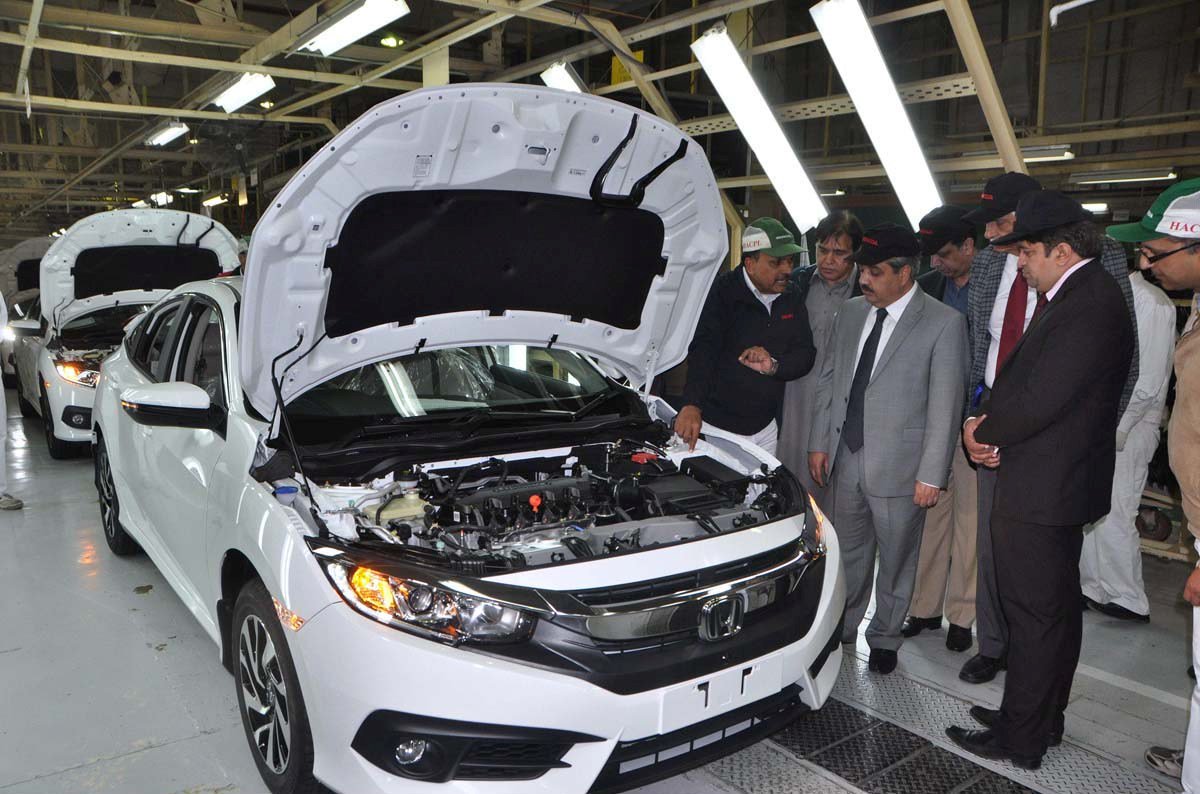Automobile sector of Pakistan is going through a tough period as it recorded a slowdown in sales which dropped 8% to 237,950 units in fiscal year 2019. This is the first time after 6 years that automobile sales have witnessed a decline.
Related: Automobile Sales Dipped 8% in FY-2019
Auto industry had forecasted to increase its sales to 0.3 million by 2021 and 0.5 million units by 2022; however changes in the policy, new taxes with increasing input cost, unpredictable surge in rupee-dollar parity and imposition of additional FED have resulted in massive increase in car prices, which has ultimately casted a negative affect on car sales.
According to industry analysts, automobile sales may witness a steep downslide of 40-60% in fiscal year 2019-20, rendering about 150,000 people jobless. Auto industry which was one of the best performing sectors in recent years is currently facing a bleak scenario ahead. This has prompted major players as well as new entrants to make major revisions in their manufacturing plans.
It is based on these factors pointing to 40% cut in present level of manufacturing that industry representatives on condition of anonymity point to 100,000 to 150,000 job losses within a year. The major contributing factors in unprecedented fall in vehicle sales are massive devaluation, new duties & taxes and high energy and interest rates.
Related: Pak Suzuki Still Struggling to Get Greenfield Status
Officials believe auto industry cannot bear the huge impact of 5% Advance Customs Duty (ACD) on all raw materials and imposition of 2.5-7.5% Federal Excise Duty (FED), which have badly affected sales and forced major players of the industry to halt production.
Honda Atlas, which assembles vehicles between 1300cc to 1500cc engine capacities is the one badly affected. The company has announced to shut down its plant for 10 days with piled up inventories of up to 2,000 units. Similarly, Indus Motor Company, the assemblers of Toyota cars in Pakistan is stopping car production for 8 days (2 days every week).
Related: Indus Motor Company Revise Production Target for H2, 2019
However Pak Suzuki which dominates the small car market mainly comprising of models below 1300cc engine capacities said it won’t cut down its production. The company also assured its vendors that the production targets of 2019 will remain same as those fixed at the start of year.
While Suzuki vendors have taken a sigh of relief, sources said Honda and Toyota in tandem may resort to laying off hundreds of employees after such adverse effects. According to an official related to the auto industry, government should take back recent taxes imposed on auto sector and tighten its control on exchange rate. He said auto industry knew that there might be a slowdown, but such drastic meltdown was definitely not being anticipated.
Related: EV Policy to be Aligned with Current Auto Policy 2016-21
A CFO working with a new entrant said if the government was committed to facilitate the industry, there should be some major decisions, including withdrawing ACD on all imports and FED on assembled cars. Moreover, for the growth of the industry Auto Policy 2016-21 should be followed with full spirit so the industry could predict and plan accordingly. One after another policy shift could never produce positive results.
Likewise auto parts’ vendors have reduced working days and cut down to single shift operations due to prevalent negative sentiments, while replacement and further hiring has also been stopped.
Full story: The News

A computer animation professional with over 23 years of industry experience having served in leading organizations, TV channels & production facilities in Pakistan. An avid car enthusiast and petrolhead with an affection to deliver quality content to help shape opinions. Formerly written for PakWheels as well as major publications including Dawn. Founder of CarSpiritPK.com







